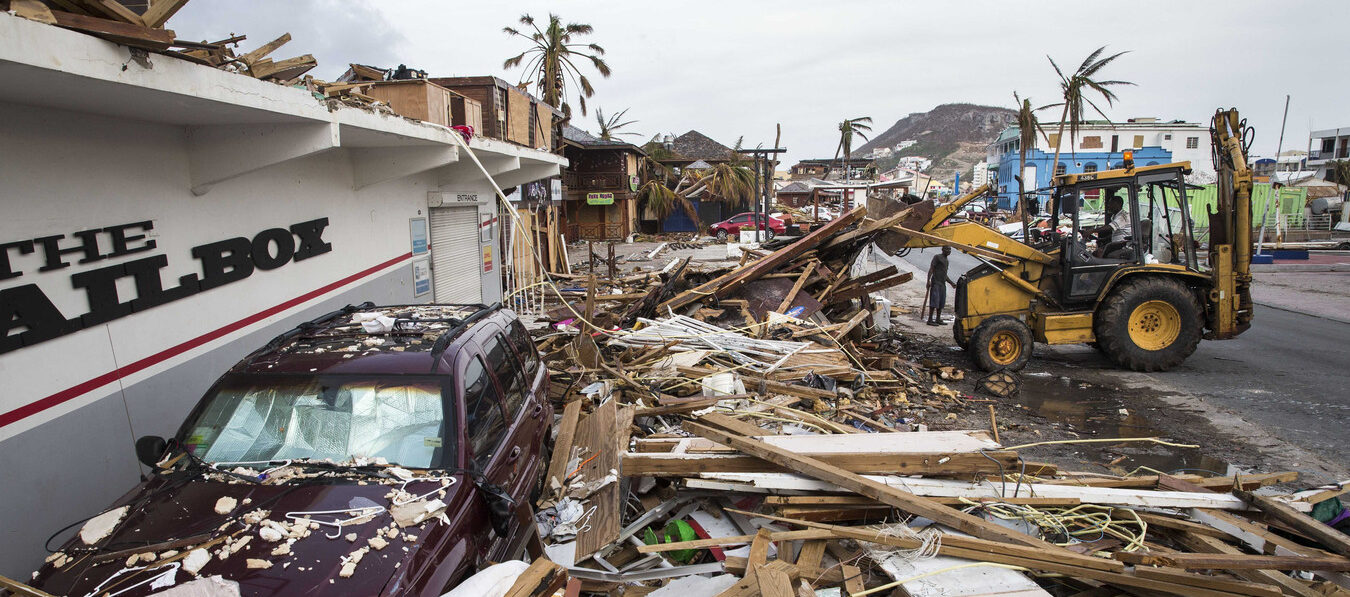The Central Bank of Curaçao and Sint Maarten (CBCS) warns of the economic consequences of climate change. “The report is a signal to politicians who mainly think about today and tomorrow, and not about the situation over 25 years,” says economist Rob van den Bergh (Curconsult).
Central Bank Director Richard Doornbosch writes in the report that the Caribbean is the region with the highest exposure to climate-related natural disasters. As a result, the chance of extreme weather is ‘an ongoing risk to the economic prospects for Curaçao and Sint Maarten’. “Natural disasters can lead to major damage to infrastructure and buildings.”
Too little attention
Van den Berg (Curconsult) says he understands that the central bank is now specifically drawing attention to the effects of climate change. “The governments of Curaçao and Sint Maarten have always paid too little attention to climate change.”
“For years, little or no attention was paid to the subject. They have consistently underestimated future problems such as hurricanes, rain, floods.”
An additional detail, according to Van den Berg, is that plans are being made for the special Caribbean municipalities, while politicians in Aruba, Curaçao and Sint Maarten – relatively speaking – do little about this and do not make money available for this. “So if you want to keep your feet dry, emigrate to Bonaire.”
The task of the CBCS is to monitor the financial sector of the countries and the value of the Antillean guilder.
3.7 Billion Naf
In its report, the central bank cites the aftermath of Hurricane Irma, the most recent disaster in Sint Maarten. The devastation and high economic toll demonstrate the potential for natural disasters. “The total estimated damage from that catastrophic category 5 hurricane to Sint Maarten is more than NAf. 3.7 billion.”
In addition, the government finances of Sint Maarten deteriorated, partly because the economy was doing badly and therefore less money was coming in. Despite the 1 billion Antillean guilders made available by the Netherlands for reconstruction, the government of Sint Maarten had to take out liquidity loans from the Dutch state.
“These loans currently represent approximately 13 percent of the total government debt of Sint Maarten,” said the CBCS president.
National strategy
In concrete terms, Doornbosch advises Curaçao and Sint Maarten politicians to develop a comprehensive national strategy for climate adaptation.
The climate plans can also be good for the economy. Because in addition to the serious threats that climate change poses, according to Doornbosch it also offers opportunities for economic growth through investments in resilient infrastructure. The positive opportunities also lie in the transition to renewable energy.
The central bank is therefore now mapping and assessing the financial risks for the financial sectors of Curaçao and Sint Maarten in general and the supervised institutions in particular.
The full text of the Economic Bulletin for December 2023 can be found on the CBCS website.








